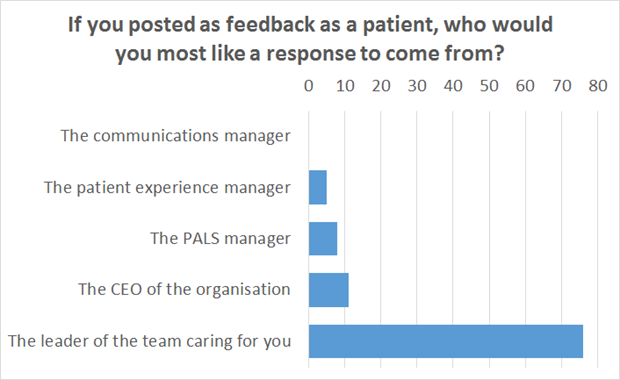
Over the past 10 years, patient experience has come to be seen as one of the three quality pillars of modern health care, alongside safety and effectiveness. And so, increasingly, the education and training of healthcare professionals is emphasising not only anatomy and physiology, but also experience, communication and culture.
The stories people share online about their healthcare experiences represent an extraordinary resource for students and teachers alike, giving immediate access to thousands of experiences of services across the UK. And now, in partnership with a number of universities, we are exploring how students can best use online patient feedback, and what they gain from it.
For example, Edinburgh University used stories from Patient Opinion to help nursing students develop an understanding of patient perspectives of their care. Over the past two years Sheffield Hallam University has used Patient Opinion to support inter-professional education for students on a range of courses in the faculty of health and wellbeing. Patient experiences of staff communication, teamwork and the role of different professions have been used to stimulate discussion and debate.
And in the past year, Plymouth University has introduced Patient Opinion into the undergraduate nursing curriculum, where it takes its place alongside topics such as social media, digital professionalism, communication and leadership. Students arriving at Plymouth are encouraged to engage strongly with social media and are actively involved with patient participation initiatives across the south west. (Alongside staff and students from Plymouth, we’ll be presenting some of this work at the RCN Centenary Conference in November 2016).
Today’s health professionals in training are typically digital natives who grew up taking online communication for granted. So it is no surprise that they see online patient feedback as an expected part of the modern healthcare landscape.
In a recent online seminar, I used the instant polling facility to ask 125 third year nursing students at Plymouth University: “As a newly qualified nurse, would you want to see online patient feedback about the service you are working in?”
The response? 90% replied “yes, definitely”, and 10% “yes, probably”.
And as a newly qualified nurse, would you want to be involved in how your team responds to feedback online?
63% replied “yes, definitely”, and 33% “yes, probably”.
Indeed, this student cohort overwhelmingly felt that the clinical team were the best people to respond to online feedback:
There’s little sense here that hearing or responding to online patient feedback is irrelevant, scary or someone else’s job.
Currently, over 3,000 students from three universities are able to login to Patient Opinion and access features such as alerting, reporting and advanced search options.
To share what we’re learning about Patient Opinion in education, we’ll be running a small half-day workshop in Birmingham on 20 July for educators and related staff. I’ll blog more on this soon, but in the meantime, if you are interested in any of this work and would like to learn more, please get in touch.
Using Patient Opinion in health professional education
Using Patient Opinion in health professional education https://careopinionuk-staging.azurewebsites.net/resources/blog-resources/1-images/b6eab03d4a974156b9d78e46efb78578.png Care Opinion 0114 281 6256 https://www.careopinion.org.uk /content/uk/logos/co-header-logo-2020-default.pngUpdate from Care Opinion
Posted by James Munro, Director of Research & Development, Care Opinion, on
Thanks for your feedback.

